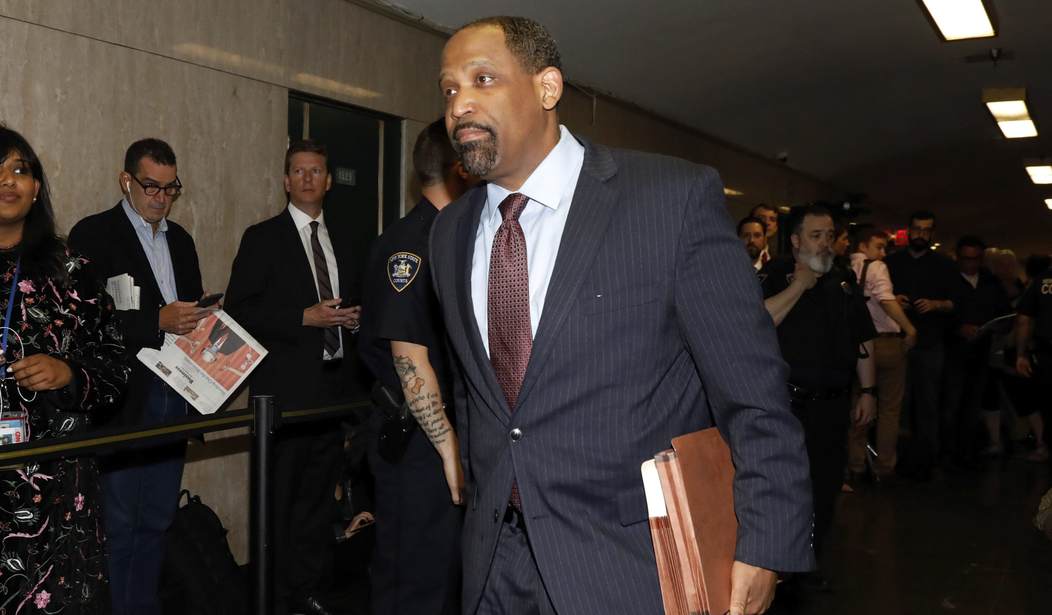Ronald S. Sullivan Jr., the black Harvard law professor who was demoted from his role as co-faculty dean following student outrage over his decision to represent the notorious Harvey Weinstein, wrote an op-ed in The New York Times condemning Harvard for caving to student pressure.
“The job of a teacher is to help students think through what constitutes a reasonable argument. It is a dereliction of duty for administrators to allow themselves to be bullied into unprincipled positions,” Sullivan wrote. “Unchecked emotion has replaced thoughtful reasoning on campus. Feelings are no longer subjected to evidence, analysis or empirical defense. Angry demands, rather than rigorous arguments, now appear to guide university policy.”
Sullivan briefly recounted how Harvard College announced in May that it would not renew his appointment, nor that of his wife, Stephanie Robinson, as faculty deans of Winthrop House, “because I am one of the lawyers who represented the Hollywood producer Harvey Weinstein in advance of his coming sexual assault trial.”
While Harvard claimed it demoted them due to “serious and numerous” “concerns about the climate in Winthrop House,” Sullivan insisted that his representation of Weinstein was at the heart of the demotion. “The administration’s decision followed reports by some students that they felt ‘unsafe’ in an institution led by a lawyer who would take on Mr. Weinstein as a client.”
Hollywood producer Harvey Weinstein is almost certainly guilty of a long train of sexual assaults, as more than 80 women have come forward with claims ranging from harassment to rape. Even though he is likely guilty, Weinstein deserves legal representation and a fair trial. These due process rights also protect his alleged victims, since the failure of a thorough legal defense will likely vindicate their claims. Sullivan argued that this should have been a teachable moment for students.
“I am willing to believe that some students felt unsafe,” the professor conceded. “But feelings alone should not drive university policy. Administrators must help students distinguish between feelings that have a rational basis and those that do not. In my case, Harvard missed an opportunity to help students do that.”
During the ten years Sullivan served as faculty dean, he “represented survivors of sexual assault as well as people accused of sexual assault.” In the past fall semester, he served as a special prosecutor in the sexual assault case against Eric Greitens, a former governor of Missouri.
“The administration knew full well that for 10 years I had been able to fulfill my duties as a faculty dean — including advising and representing student survivors of sexual assault in the context of Title IX — while representing clients in criminal court. Until this spring, there was never even a whisper of a complaint that I was unable to provide the care and concern that all students concerned with sexual violence deserve,” he added.
Sullivan suggested that students who feel “unsafe” due to his representation of Weinstein “might, after a reasoned discussion of the relevant facts, question whether his or her feelings were warranted. But Harvard was not interested in having that discussion. Nor was Harvard interested in facilitating conversations about the appropriate role of its faculty in addressing sexual violence and the tension between protecting the rights of the criminally accused and treating survivors of sexual violence with respect.”
Most egregiously, Harvard did not respond to vandalism directed against this law professor. Due to that vandalism, he had to explain himself to his young son.
“Not long ago, I was taking my 9-year-old son to school when we saw that ‘Down with Sullivan’ had been spray-painted on the wall abutting our home. I had to explain to my son that representing unpopular clients serves an important constitutional role in our democracy and that I had done nothing wrong. As you might imagine, it was hard to see my son read that piece of graffiti,” the law professor wrote.
“The administration said and did nothing in response to the vandalism. Yet again, reasoned discourse lost out to raw feelings.”
Harvard’s dereliction of duty sets a horrific precedent. Sullivan, the first black co-faculty dean at the school, was performing a vital legal service to the community and to America at large. While Weinstein is a disgusting individual, he still has rights to due process. Furthermore, his conviction for rape and sexual assault will be taken more seriously thanks to Sullivan’s legal representation.
Yet this episode seems to illustrate the growing witch hunt mentality often applied against those accused of sexual assault. On many college campuses, Title IX offices deprive the accused of basic due process rights, on the theory that accusers must be believed. This is wrong: women and men who come forward with sexual assault claims should, of course, be taken seriously, but their claims should be investigated impartially. Sexual assault claims can be mistaken or fabricated, and even claims that have been proven false can do serious damage to the reputation of the accused.
Sullivan is not the villain here — he is the victim of an angry mob that seems quick to overlook the basic principles of due process. Harvard should have defended him, and failing that, the university should have at least maintained him in his position. Demoting him was shameful and a dereliction of duty.
Follow Tyler O’Neil, the author of this article, on Twitter at @Tyler2ONeil.









Join the conversation as a VIP Member